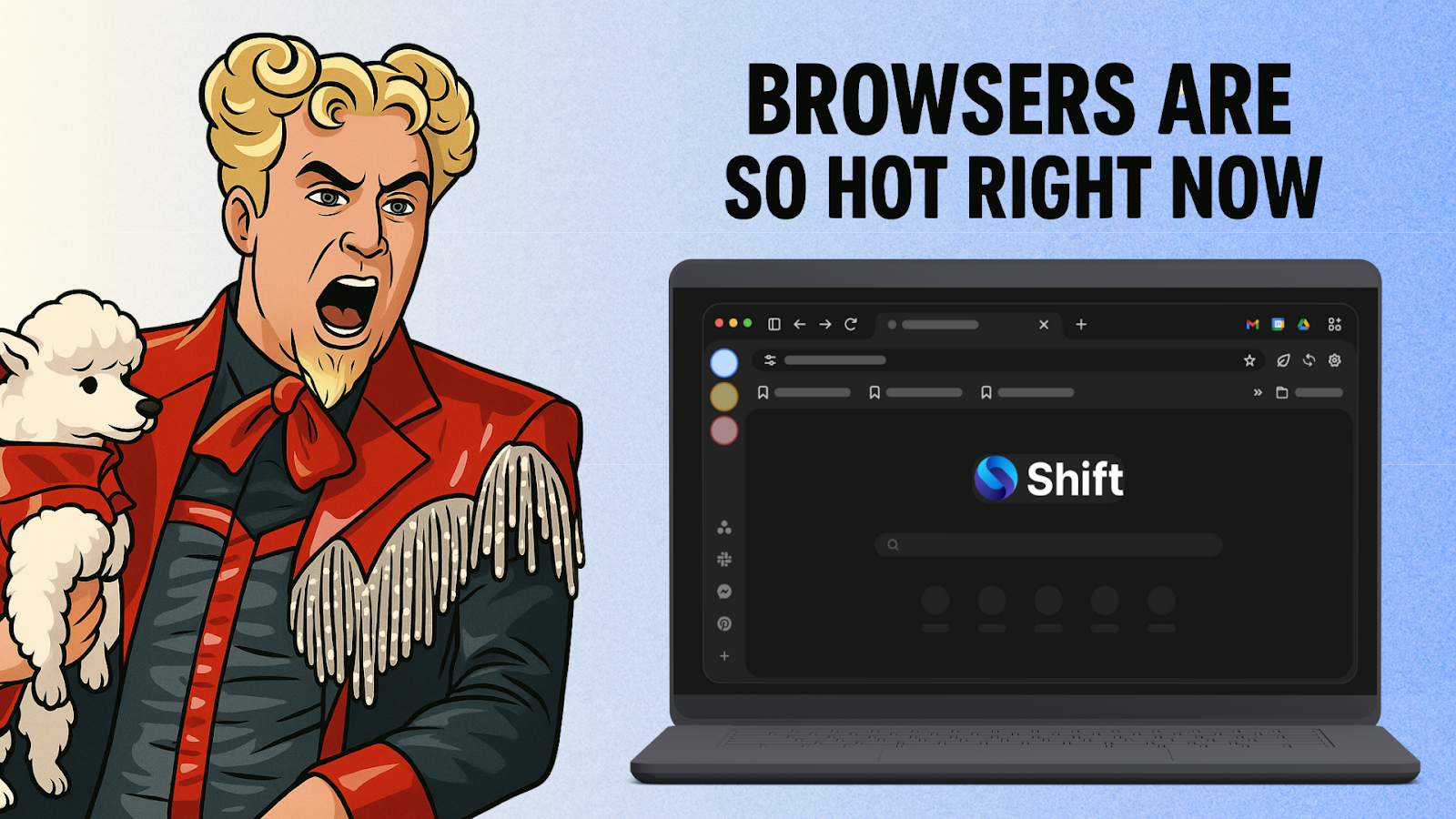Why Browsers Are So Hot Right Now: Q&A With Shift CEO Neil Henderson
We sat down to discuss the company’s 2026 State of Browsing Report—and what it reveals about the future of browsing.

As the digital world evolves, one of the oldest tools in tech—the web browser—is having a major moment. With Atlassian’s $600M acquisition of The Browser Company, ChatGPT’s new Atlas product, and the rise of AI-native browsers like Perplexity and Brave, consumers are suddenly rethinking what browsers can (and should) do.
Shift, a Canadian-made company known for letting users “build their own browser” via drag and drop modules, just released its 2026 State of Browsing Report. The study highlights how digital burnout, social media overload, and AI innovation are reshaping online habits—and making browsers sexy again.
We sat down with Neil Henderson, CEO of Shift, to discuss the findings and where the future of browsing is headed. Note: This interview has been lightly edited for clarity and brevity.
Q: First, tell us a little about Shift?
Neil: We’ve always been a browser for power users who want to do more each day. With Shift, people can create multiple “spaces” for different aspects of their life—work, personal, side hustles, even shopping or streaming. Each space has its own apps, notifications, and layout, which really helps prevent that constant context switching that causes burnout.
Some of our users have eight or ten spaces, each dedicated to a specific client or project. When they’re in that workspace, they’re focused only on that. It’s deep work by design.
And as a cherry on top, we’re proud of our Carbon Meter, which estimates and offsets emissions from using Shift. We believe browsers should not only improve productivity but also be mindful of their environmental impact.
Q: Neil, browsers haven’t been this buzzy in decades. What’s driving the renewed interest?
Neil: Browsers have been a sleepy space for a long time, and now all eyes are on what AI can do within them. It’s wild to see how quickly the space has evolved. We’ve been building browsers for over a decade, and for the first time, people are realizing the browser itself can be an active part of their digital lives—not just a tool to access them.
Most people used Chrome because they knew Google, or Safari because they had a Mac. But now users are looking for personalization and workflow optimization. Thanks to AI and companies like Atlas and Perplexity, consumers are open to switching. Our survey found over 90% of people are considering new browsers for better personalization—that’s a massive shift.
Q: Your report also found that 62% of users feel digital burnout regularly. What’s fueling that—and how can browsers actually help?
Neil: Notifications are coming from everywhere—apps, email, social media—all day long. People are constantly switching tabs, tasks, and tools, which is exhausting. That context switching is the enemy of focus.
Shift helps by letting users build focus zones. Within a space, you only see the apps and notifications relevant to that area of your life. That reduces friction, increases focus, and ultimately gives people time back. Every second you save adds up—and that time can go toward family, rest, or creativity.
Q: The report also found users want to personalize their browsing experience. How is Shift helping make that possible?
Neil: We launched a feature called Build Your Own Browser. It’s like digital Legos—you can drag and drop browser components however you like: tabs on the left or right, search bar anywhere, custom app layout, even specific icons.
People told us they want their browser to feel like theirs. Not one-size-fits-all. Whether it’s customizing design or organizing by workflow, Shift lets you make the browser work for you. That personalization is what people are really craving.
Q: Your report also looked at how AI is influencing consumer attitudes. What’s Shift’s stance on AI and privacy?
Neil: We’re a certified B Corp, and we take the environmental and privacy impact of tech seriously. AI is powerful, but it also consumes huge energy resources and consumers are starting to care about that.
We’re proud to be proactive. Shift measures and offsets emissions, and on the security side, we’ve partnered with Google’s WebRisk API to warn users before they visit malicious or “prompt injection” sites that might exploit AI models. Every browser has a responsibility to protect its users as this space evolves.
Q: With all this momentum, what’s next for Shift — and for the browser industry as a whole?
Neil: We’re still in the early days. AI is shining a light back on search and browsing, but there’s a long road ahead. Browsers are the most-used software in most people’s daily lives and they’re the gateway to the internet, to work, to communication.
Our mission is to make that gateway more personal, more sustainable, and more productive. We believe the browser should adapt to you, not the other way around.
